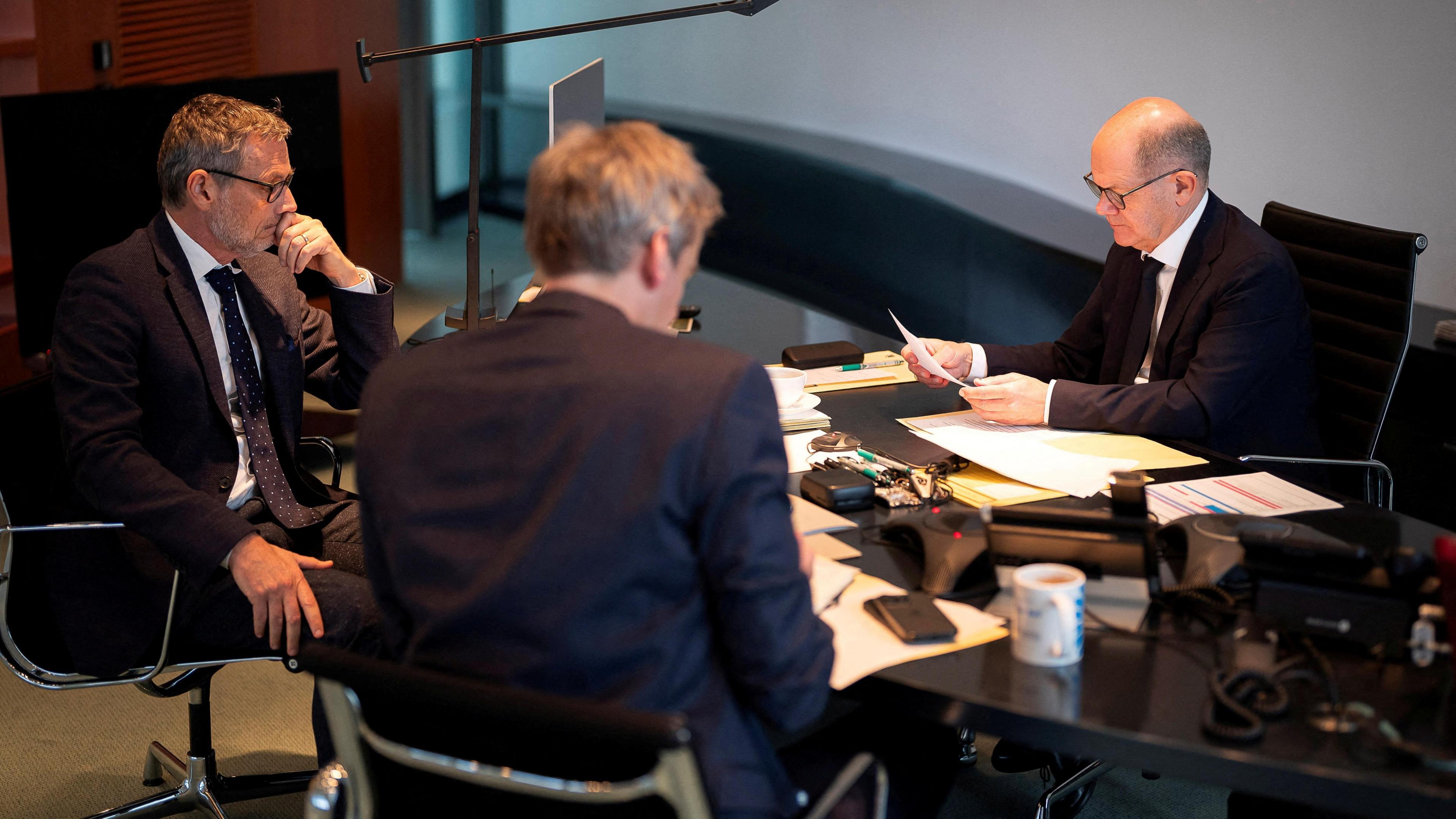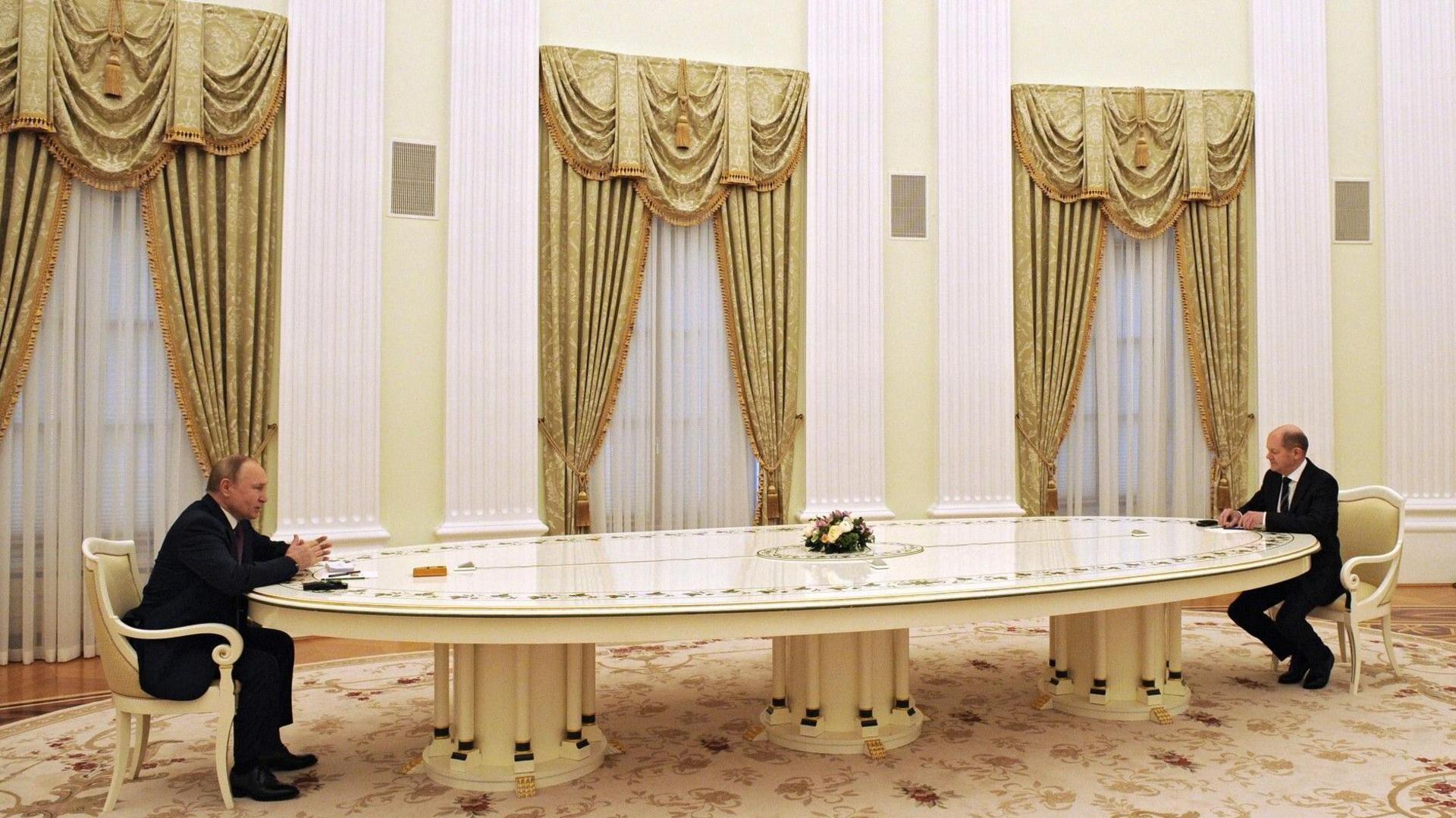North Korean troops in Ukraine ‘grave escalation’, Scholz tells Putin

This was the first phone conversation between Scholz and Putin since December 2022
- Published
German Chancellor Olaf Scholz told Russian President Vladimir Putin on Friday that Russia’s deployment of North Korean troops against Ukraine was a “grave escalation” of the conflict, according to government sources.
In the first phone call between the leaders in nearly two years, Scholz called on Putin to end the war and pull Russian troops out of Ukraine.
The Kremlin described the conversation as "a detailed and frank exchange of opinions on the situation in Ukraine”, adding "the very fact of dialogue is positive".
Ukrainian President Volodymyr Zelensky said the call was a “Pandora’s box” and argued it weakens Putin's isolation.
Ukraine says it fought N Korean troops for first time
- Published6 November 2024
North Korea troops in Ukraine would escalate conflict, Lukashenko tells BBC
- Published23 October 2024
Putin does not see Ukraine war as mistake - Scholz
- Published14 September 2022
According to government sources, the chancellor condemned Russia’s attack on Ukraine and called on Moscow to negotiate with Kyiv to come to a “fair and lasting peace”.
He also stressed “Germany’s unwavering determination to support Ukraine in its defensive struggle against Russian aggression for as long as necessary”.
Scholz condemned in particular the Russian air strikes on civilian infrastructure.
The phone conversation lasted about an hour and both leaders agreed to stay in contact. Russian media is reporting that according to the Kremlin, the call was initiated by Germany.
The German government will be keen to avoid any accusations that Berlin is trying to strike a deal with Moscow over Ukraine’s head, particularly given painful 20th century memories in eastern Europe of Nazi Germany and the Soviet Union carving up the region between them.
In a written statement, the chancellor’s office highlighted that Scholz also talked to Zelensky before the call to Putin. Scholz also planned to talk to Zelensky again once the call was over to give details about the conversation with the Russian president.
In a statement from the Kremlin to Russian media, Putin reportedly told Scholz that Russian-German relations had suffered "an unprecedented degradation across the board as a result of the German authorities "unfriendly course”.
According to the Kremlin, Putin told Scholz that any potential peace agreement must “be based on the new territorial realities” — in other words the Ukrainian territory that Russia has occupied since 2022.
Putin also said a peace deal could only happen by removing “the root causes of the conflict”. The Kremlin justifies its invasion of Ukraine with the accusation of Nato “expansion” into eastern Europe.
In the call, Putin reportedly said “the current crisis was a direct result of Nato's years-long aggressive policy aimed at creating in Ukrainian territory an anti-Russian bridgehead”.
In an interview on German television last Sunday, Scholz said he was planning to talk to Putin to push for peace talks. He said he was not acting on his own, but rather in consultation with others.
There is speculation that Scholz is planning to also talk to the Chinese president Xi Jinping, a lukewarm supporter of Russia, about the war in Ukraine at the G20 next week in Rio de Janeiro.
The last time Scholz talked to Putin on the phone was on 2 December 2022. They last met in person a week before the full invasion of Ukraine.

They last met in Moscow a week before Russia's full-scale invasion of Ukraine in February 2022
At the time, Scholz returned to Berlin with promises from Putin that Russia did not intend to invade Ukraine. The attack a week later was the final break in trust between Germany and Russia.
For decades, Berlin had tried to ensure peace with Moscow by binding the two countries together with trade and energy links. That aspiration shattered overnight when Russia launched its full invasion of Ukraine.
Today, Germany is the largest donor of military and financial aid to Ukraine after the US, and mainstream politicians from across the political spectrum, as well as most voters, favour supporting Ukraine.
But with elections in Germany now due in February, pressure is growing for serious peace negotiations to end the war in Ukraine.
The far-right AfD and the new far-left populist BSW, which together could win between a quarter and third of votes in the election, accuse the government of not doing enough to bring about a peace deal.
Scholz’s governing coalition collapsed last week and he now runs a minority government until the elections. Both he and his party are doing badly in the polls.
Germany has been hit hard by the war in Ukraine, both politically and economically.
So any sign that Scholz is helping to end the conflict could turn around his fortunes at the ballot box.